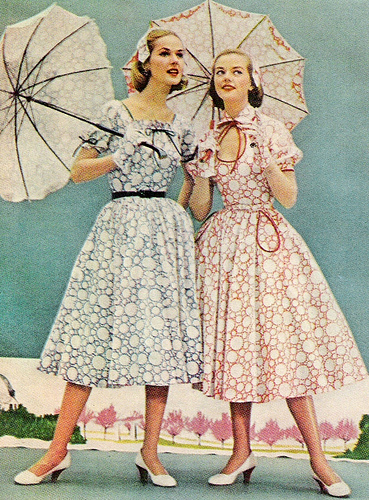Once World War II ended, newcomer Christian Dior rebelled against the austerity of the time and produced an extravagant design of a fitted jacket with a cinched waist and a full calf-length skirt using ten to eighty yards of fabric. This style, dubbed the "New Look," would prove to be a turning point in the postwar.
Dior's designs
became extremely
popular, as women
were longing to
dress femininely and
frivolously again.
Chanel countered the voluminous
look with boxy suits and slim skirts in
tweed. Synthetic fabrics (nylon,
polyester, and acrylic) became
more
widely used because they
were
affordable and easy to maintain. A
consumer market was born, and for
the
first
time, teenagers became a
force in
the
fashion market as a result
of
influences such
as music and film.


